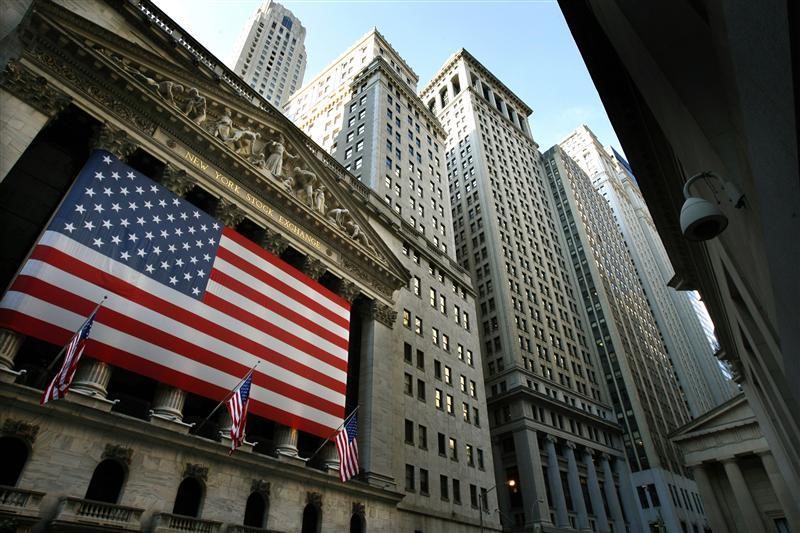Investing.com - Here are the top five things you need to know in financial markets on Tuesday, May 7:
1. China’s Vice Premier confirmed to participate in trade talks
Sunday’s tweets from U.S. President Donald Trump, which made waves on Monday, were still rippling through markets on Tuesday ahead of another round of high-level trade talks.
China’s Ministry of Commerce finally confirmed Tuesday that vice premier Liu He will attend talks in Washington on May 9-10, offering some hope that talks have not completely broken down.
However, U.S. Trade Representative Robert Lighthizer and Trade Secretary Steven Mnuchin insisted that China was not fulfilling commitments and that plans to raise tariffs on Chinese imports from Friday will still go ahead.
China’s foreign ministry said on Tuesday that tariffs won’t resolve any of the problems in the ongoing trade dispute.
2. Global stocks cautious and volatile, immersed in trade uncertainty
Global stocks still remained skittish on Tuesday amid concerns over the U.S.-China trade dialogue.
Nerves remained on edge stateside with U.S. futures pointing to a lower open as risk aversion continued to weigh. Dow futures declined 136 points, or 0.5%, while S&P 500 futures fell 15 points, or 0.5%, and Nasdaq 100 futures traded down 45 points, or 0.6%.
Wall Street had ended Monday in the red, but the fact that the Dow managed to pare losses by more than 300 points took some of the edge off the decline.
Chinese stocks staged a timid recovery after the Shanghai Composite saw its worst rout in more than three years on Monday. Volume was however around 30% lower than the one-month average, suggesting a lack of conviction.
Japan played catch-up in its first day of trading since a long holiday break, with the Nikkei 225 ending down 1.6%.
European stocks adopted a cautious stance, particularly after a weak reading of factory orders in Germany, the euro zone’s largest economy. The pan-European Euro Stoxx 50 traded down 0.5% by 5:31 AM ET (9:31 GMT).
3. Oil juggles trade worries, Iran conflict ahead of inventories
Oil prices were lower on Tuesday but little changed for the week as investors balanced trade developments against heightened tensions in the Persian Gulf, while markets prepped for weekly data on U.S. crude inventories.
Trump’s threat of increased tariffs on Chinese imports put downward pressure on oil, reviving fears that a trade war will damp global growth and consequently also oil demand.
Balancing that, Axios quoted Israel's Channel 13 diplomatic correspondent Barak Ravid as saying that Israel has passed information to the U.S. about an alleged Iranian plot to attack U.S. interests in the Persian Gulf.
The information, according to the report, was the reason behind U.S. National Security Adviser John Bolton’s decision to send an aircraft carrier strike group and bombers to the area.
Read more: With U.S.-Iran Showdown Heating Up, What Is Oil Endgame? - Barani Krishnan
Despite being up more than 30% so far this year, oil has recently been under pressure as data from the U.S. Energy Information Administration as shown one large stockpile build after the other during the past six weeks. Last week, U.S. inventories grew by nearly 10 million barrels, according to the EIA.
The American Petroleum Institute will release its weekly data on U.S. crude stockpiles at 4:30 PM ET (20:30 GMT), followed by official government figures on Wednesday.
4. Beaten-Down Lyft Looks for Earnings Boost Ahead of Uber IPO
Ride-sharing company Lyft (NASDAQ:LYFT) will take the earnings spotlight as it reports after the close later Tuesday. On average, analysts are looking for a loss of $3.33 per share, according to forecasts compiled by Investing.com.
Revenue is expected to come in at about $740 million.
This is Lyft’s first earnings report since its debut at the end of March. Since then, it’s been hammered by the market, with shares down more than 22% since the first day of trading.
The performance has cast a cloud over rival Uber’s own stock market debut, due to take place on Friday, signalling that investors' enthusiasm for loss-making startups has its bounds.
Uber (NYSE:UBER) is expected to price the offering on Thursday in what analysts forecast will result in the largest IPO since Alibaba (NYSE:BABA) in 2014, and the largest by an American company since Facebook (NASDAQ:FB) in 2012.
5. Political upheaval in Turkey drives lira to new crisis
The Turkish lira fell to an eight-month low after the country’s election authorities annulled results for Istanbul’s recent municipal election.
The decision triggered immediate street protests in Turkey’s largest city against the government of President Recep Tayyip Erdogan, pushing the dollar as high as 6.1975 lira in early trading on Tuesday.
That’s the highest since last September, when rising dollar interest rates and a heavy foreign debt repayment schedule threatened to bring down the country’s banking system.
Economic hardship since last summer contributed to Erdogan’s AK party losing control of Turkey’s three biggest cities in elections in March. The central bank, which has kept interest rates high since last year's crisis, still hasn't been able to stop the outflow of foreign reserves.
